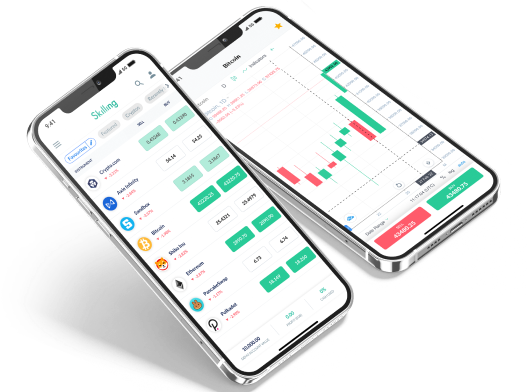Natural gas ETFs represent a unique segment in the world of trading and investment. This article will look into what natural gas ETFs are, highlight some key ETFs in this sector, discuss their importance for traders, and answer frequently asked questions.
Natural Gas ETFs: What are they?
Natural gas Exchange-Traded Funds (ETFs) are investment funds traded on stock exchanges, much like stocks. They offer traders and investors exposure to the natural gas market without the need to directly trade physical commodities or futures contracts. Here's what makes them appealing:
Practice with a Demo Account
Try our demo account and experience real market conditions.
71% of retail CFD accounts lose money.

- Diversification: Natural gas ETFs often include a range of assets related to natural gas, such as futures contracts, company stocks in the energy sector, and derivatives This diversification can help mitigate risk.
- Accessibility: They provide an accessible way for investors to gain exposure to natural gas prices and the energy sector's performance.
- Flexibility: Traders can easily buy and sell these ETFs on the stock market offering flexibility similar to trading stocks.
Natural Gas ETFs to consider
Several natural gas ETFs stand out in the market, each with its unique characteristics:
- United States Natural Gas Fund (UNG): One of the most popular natural gas ETFs, UNG primarily invests in near-month futures contracts. It's a go-to for direct exposure to natural gas prices.
- ProShares Ultra Bloomberg Natural Gas (BOIL): This ETF offers leveraged exposure to natural gas, aiming to provide double the daily performance of its underlying index.
- First Trust Natural Gas ETF (FCG): FCG invests in companies involved in the natural gas industry, offering a different approach to investing in the natural gas market.
Why is it important for traders?
Natural gas ETFs hold significant importance for traders for several reasons:
- Energy market dynamics: The natural gas market is subject to various influencing factors, including environmental policies, technological advancements, and geopolitical events. ETFs offer a way to engage with and benefit from these dynamics.
- Diversification benefits: Investing in natural gas ETFs can diversify a trader's portfolio, especially for those looking to include energy commodities without direct exposure to the volatility of the natural gas market.
- Hedging strategies: For traders involved in other energy-related investments, natural gas ETFs can serve as a hedge against price fluctuations in the broader energy market.
- Accessibility and liquidity: These ETFs are traded on major stock exchanges, ensuring ease of access and liquidity, which is crucial for traders who need to enter or exit positions quickly
Experience Skilling's award-winning platform
Try out any of Skilling’s trading platforms on the device of your choice across web, android or iOS.
71% of retail CFD accounts lose money.

FAQs
1. Are natural gas ETFs a safe investment?
While ETFs can offer diversification, investing in natural gas ETFs still involves risk, especially due to the volatility of the energy market.
2. How do natural gas ETFs react to market changes?
Natural gas ETFs can be sensitive to changes in energy prices, supply and demand dynamics, and broader economic factors.
3. Can I use natural gas ETFs for long-term investment?
Yes, but it's important to regularly review and adjust your investment strategy, considering the volatility and changing dynamics of the energy sector.
4. How do natural gas ETFs perform compared to direct natural gas investments?
Natural gas ETFs might not mirror the exact price movements of natural gas due to factors like contango and backwardation in futures markets. However, they offer a more accessible and diversified way to invest in the natural gas market.
5. Can geopolitical events affect natural gas ETFs?
Yes, geopolitical events, especially those impacting major natural gas-producing regions, can significantly influence natural gas prices and, consequently, the performance of natural gas ETFs.
6. Are there any tax implications for investing in natural gas ETFs?
Yes, like any investment, natural gas ETFs have tax implications. It's advisable to consult with a financial advisor to understand the specific tax considerations.











